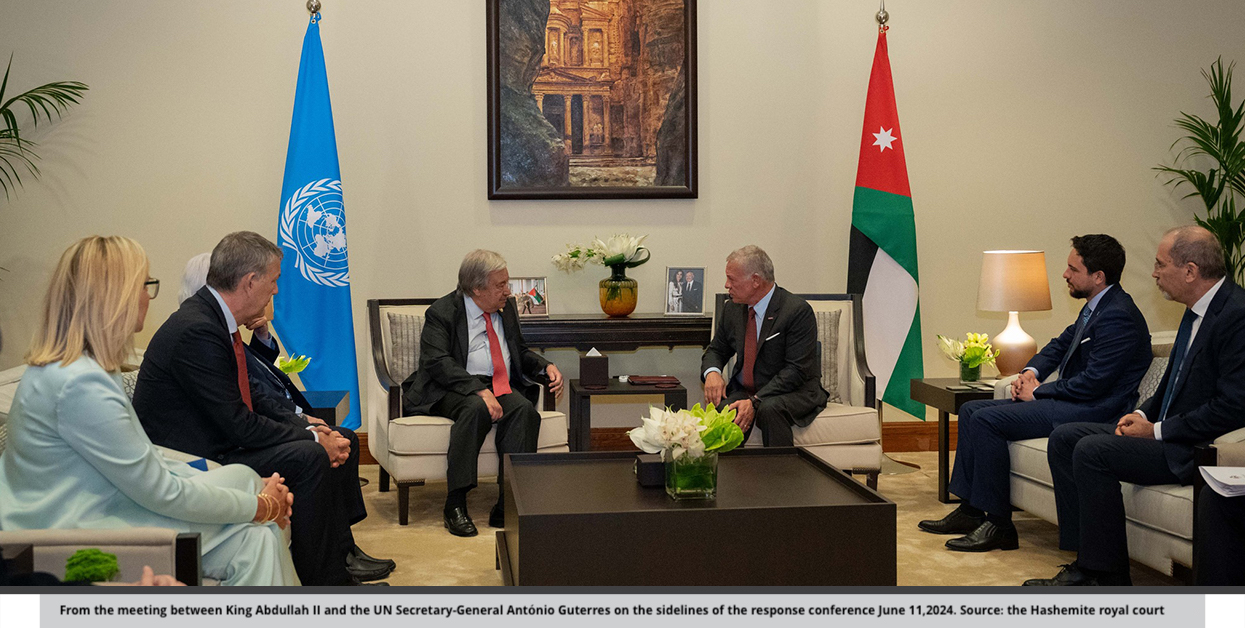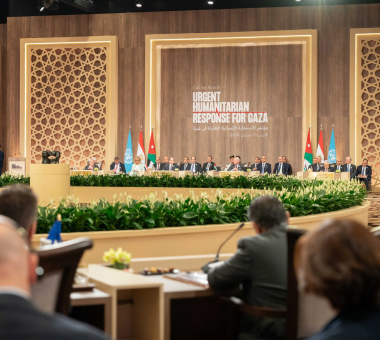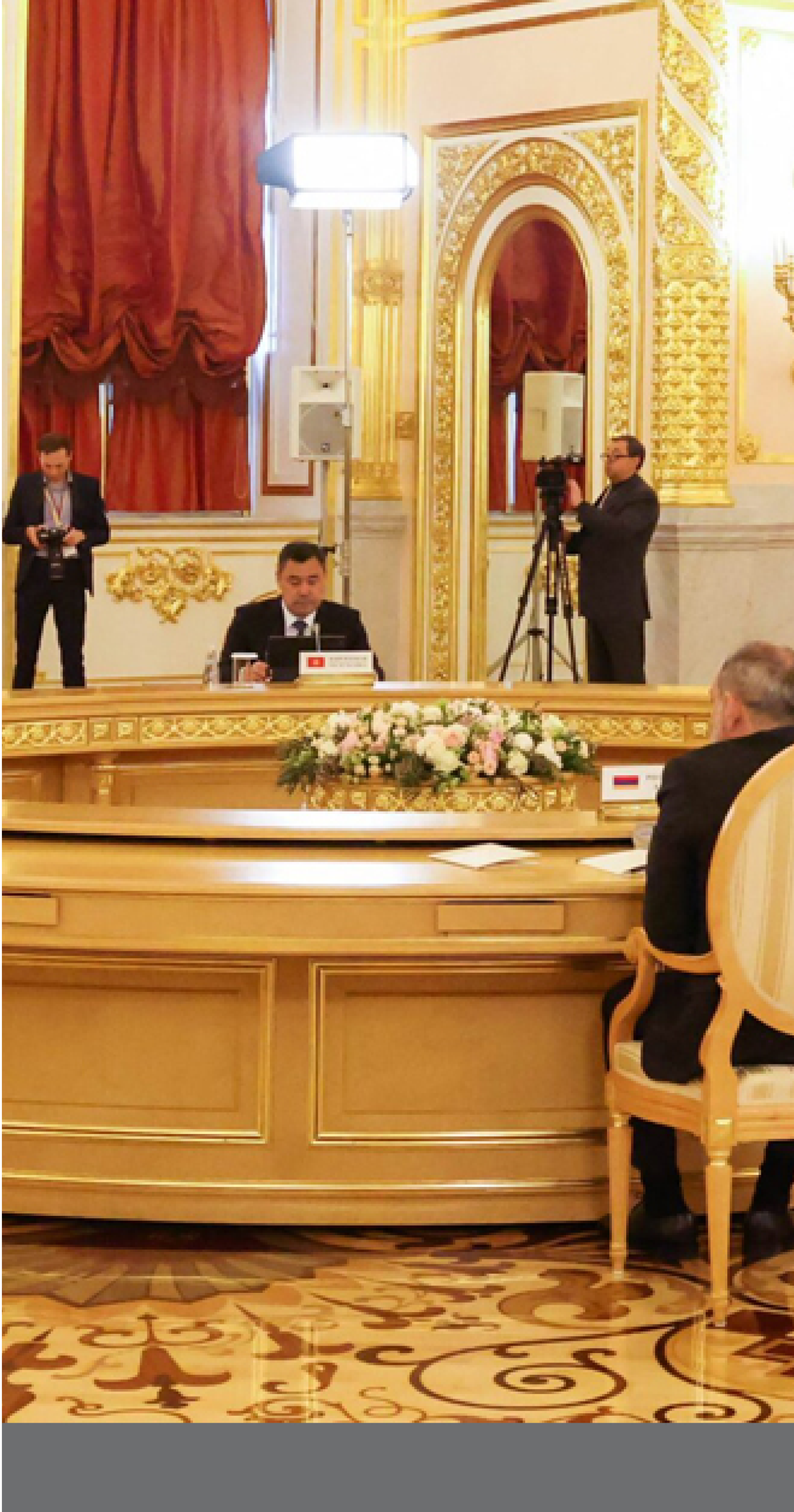Jordan hosted an international conference for humanitarian response in the Gaza strip on June 11 that was organized jointly by Jordan, Egypt, and the United Nations. In attendance were representatives from 75 countries alongside international humanitarian and relief organizations. U.S. Secretary of State Antony Blinken, who was in the region for a tour aimed at pushing for a ceasefire deal proposed by U.S. President Joe Biden, also participated.
The conference comes eight months after the start of the war in Gaza, amid a worsening humanitarian crisis in the region following the closure of the Rafah crossing, which Israel took control of on May 7, 2024. In his opening speech, Jordanian King Abdullah II described the event as standing at a critical juncture that tests the common conscience and puts humanity to the test.
Goals and Outcomes
The conference discussed five main themes related to determining the mechanisms of international response to the humanitarian crisis in the Gaza Strip. These themes included key aspects of coordinating this response among the components of the international community, including countries and organizations, as well as ways to accelerate the provision, delivery, and distribution of aid and how to sustain it. The conference also focused on identifying operational and logistical needs to improve living conditions in Gaza.
Additionally, it explored priorities for early recovery and reconstruction, particularly in essential service sectors such as education, health, shelter, nutrition, electricity, sanitation, and communications.
Despite the inherently humanitarian nature of the conference, its content was not devoid of political messages and positions.
- The final statement called for an immediate ceasefire and the unconditional release of all detainees, as well as compliance with the International Court of Justice’s ruling that demands Israel must immediately end its military operations in the city of Rafah.
- The conference aimed to keep pace with the developments in the war, especially as it coincided with the UN Security Council’s June 12 adoption of the resolution proposed by the United States regarding President Joe Biden’s ceasefire proposal.
- The conference reflected Jordan’s consistent stance on the war, as it has been calling for a ceasefire since the first day and continuously warning against Israeli plans to displace the residents of the Gaza Strip to the Sinai Peninsula in Egypt.
- The conference addressed the situation in the West Bank on economic, political, and security levels, highlighting the harsh Israeli policies, including ongoing settler attacks, settlement expansion plans, and economic sanctions on the Palestinian Authority. The continuation of these policies threatens to push the West Bank towards a large-scale Palestinian-Israeli conflict.
- The conference reaffirmed the two-state solution as the only political horizon for resolving the conflict. The final statement emphasized the need to intensify diplomatic efforts to establish a Palestinian state along the June 4, 1967, borders
Horizons and Challenges
The timing of the conference underscores Jordan’s significant role in the Palestinian issue, which is at a critical crossroads amidst the ongoing war in the Gaza Strip, the worrying escalation in the West Bank, and the influence of extremists in the Israeli coalition government on the course of the war, and Israeli policies in the West Bank and East Jerusalem. Additionally, Jordan has played a crucial role in providing humanitarian support to civilians in the Gaza Strip since the early days of the war and has made efforts to overcome the obstacles to aid delivery and distribution, including conducting the first air drops of aid.
However, the conference primarily seeks to ensure the sustainable delivery of aid and to reach a consensus on reconstruction priorities. These efforts face several complexities.
First, the difficulty in delivering aid is not only linked to Israeli restrictions but also to the lack of field entities capable of operating in a high-risk environment. In April 2024, seven employees of the World Central Kitchen were killed in an Israeli airstrike. United Nations Secretary-General António Guterres reported the deaths of 196 aid workers, including 175 from the United Nations, since the beginning of the war. On October 10, 2023, the World Food Programme announced a temporary suspension of aid distribution due to concerns for the safety of its staff.
Second, the active parties do not have alternatives to employing social forces other than Hamas to oversee the fair and comprehensive distribution of aid, ensuring it reaches those in need.
In March 2024, Gaza families and clans rejected an Israeli request to cooperate in aid distribution to residents. In April, Hamas accused the Palestinian Authority of attempting to send a “security force” to accompany aid trucks and announced their arrest. And efforts to deliver and distribute aid are likely to become more complicated after the Palestinian Red Crescent accused Israel of using aid trucks in the operation to free four hostages from Al-Nuseirat on June 8, 2024.
Third, this phase of the war ignited international and regional ideas about the future of Gaza Strip and its reconstruction, which is surrounded by uncertainty and complexities, especially with the worsening and residential state in the Strip. The United Nations Satellite Centre (UNOSAT) reported the damage of around 90,000 buildings, among them 31,000 buildings that have been completely destroyed—which constitutes 35% of the total buildings in the Strip. The International Bank estimates the cost of the infrastructure to be around $18.5 billion.
Fourth, there is awareness that reconstruction in the Gaza Strip will take years or maybe even decades to complete, taking into consideration the size of destruction, the war remnants, and the complexities surrounding the reconstruction. These complexities are tied to post-war issues such as donor requirements, the entities overseeing reconstruction, and potentially those agencies responsible for aid distribution.
Additionally, matters of governance, authority, and administration are interconnected. The conference highlighted Jordanian and Egyptian concerns that the destruction of life-sustaining infrastructure in Gaza and delays in recovery and reconstruction might push Gaza’s residents to migrate towards Egypt. There are real fears of a repeat of the 2008 scenario when tens of thousands of Palestinians from Gaza poured into Egypt after breaching the concrete wall to buy humanitarian and essential supplies made scarce by Israeli sanctions.

Finally, the conference is considered a preemptive step towards addressing future complexities in the reconstruction file, especially in light of concerns about politicizing humanitarian aid. This is particularly relevant as the reconstruction agenda will be subject to future negotiations between Hamas and Israel, especially if the parties agree to Biden’s ceasefire plan. The plan includes negotiations in the first stage, followed by discussions in the second and third stages related to reconstruction and governance structures.
Keep in touch
In-depth analyses delivered weekly.









